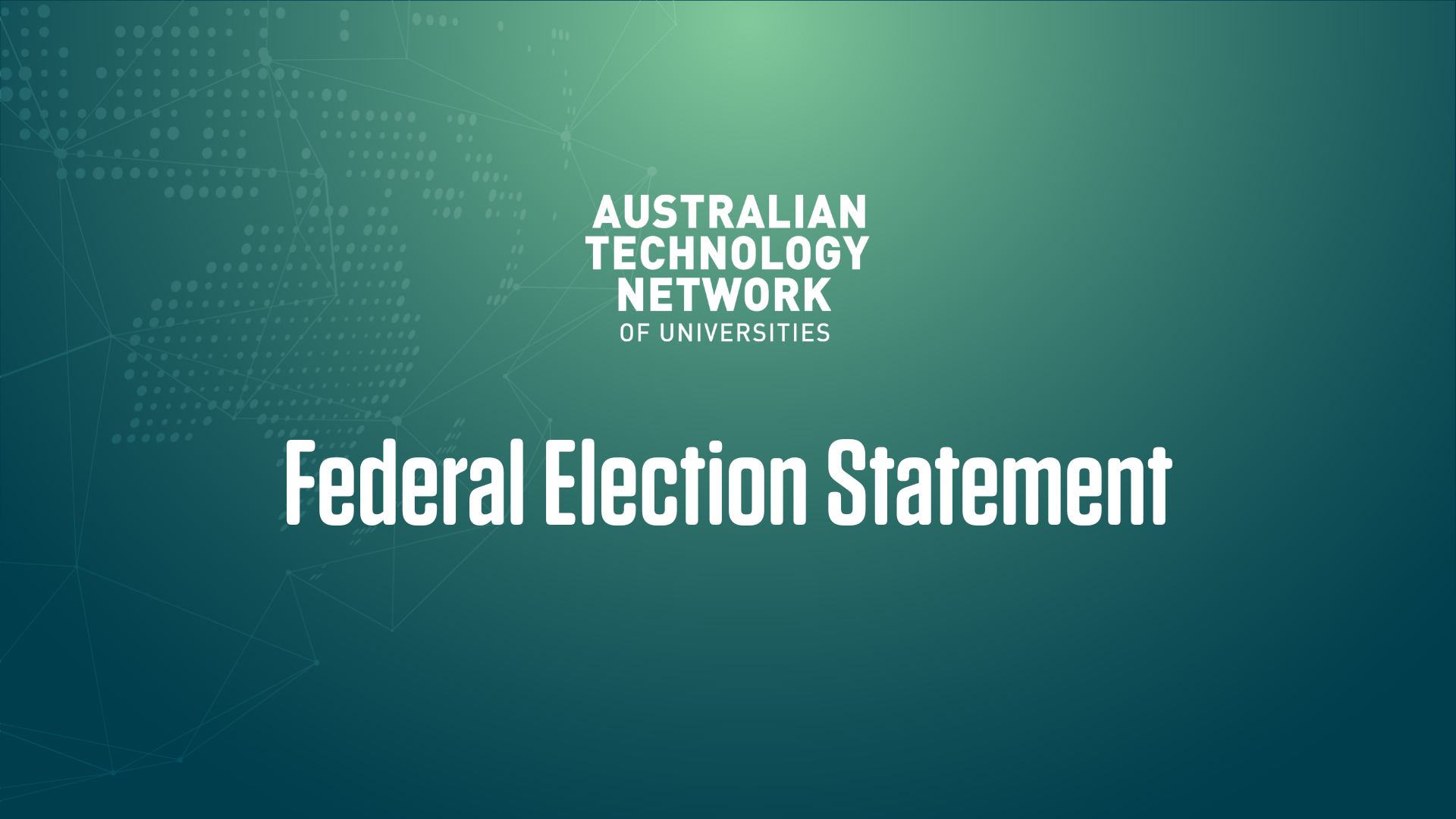Australia’s success will be driven by skills and innovation.
Australia is facing real and significant challenges – economic transformation, geopolitical instability, technological disruption, and skills shortages, just to name a few. However, as Australia prepares for the 2025 Federal Election, the nation has an opportunity to pursue a bold vision, set great ambitions, and strengthen partnerships to shape a more prosperous future. Delivering on these challenges is critical, to improve the lives of all Australians.
Australia’s universities are not just responding to change: we are shaping it.
The Australian Technology Network of Universities (ATN Universities) members are adaptable, industry-embedded, and deeply connected to their communities. Our institutions – Curtin, Deakin, Newcastle, RMIT, UniSA and UTS – excel in pioneering industry-engaged and applied research, while delivering real-world, industry-informed skills and experiences for students, from all walks of life. We educate more than 300,000 students, with one in every five Australian students attending our member universities. ATN universities teach a higher proportion of students with disabilities than other university groups, and 15% of our students are from rural or regional backgrounds. Our transnational education footprint is the broadest of any Australian university group with established campuses in nine countries. Our 90,000 international students are diverse, and they bring a cultural richness to our learning environments and our communities.
At ATN Universities, we believe that unlocking the nation’s full potential means transforming our world-class research and education ecosystem into a dynamic, innovation-driven economy that benefits all Australians. This federal election is an opportunity to work smarter with the investments we make to improve the lives of Australians, ensuring that strong and clear policy settings empower universities to create tangible, lasting impact. ATN is confident that the following measures will pave the way for success:
- A reformed equitable funding model that makes education more accessible, and institutions sustainable – so that all Australians, regardless of background and stage of life, have the skills, knowledge and opportunity to thrive in the jobs of the future. As a first step, this should involve an examination of Job-ready Graduates (JRG) and the relative contributions of students and Government and should ultimately include a reformed tertiary system that enables innovation in program/qualification design in support of lifelong learning
- A balanced international education system that places the interests of students at its heart –prioritising quality, sustainability, diversity and equity. To maximise the experiences of both domestic and international students, Australia needs a strong higher education sector which regulates the number of international enrolments. A well-regulated and student-centred approach will secure the sector’s ability to plan, attract the best and brightest students from around the world, train the next generation of researchers, and ensure all universities, including regional universities, are sustainable.
- Recognising, and ensuring the continuity, of the high-value, impactful work undertaken by our universities in research and development for the benefit of Australia – the work conducted by our institutions in applied research is world-class, sits at the doorstep of industry and, as a key component of the research engine, is vital to driving the work necessary for sovereign capability. We urge the government to strengthen university-industry connections with expanded support for collaborative projects and industry-oriented research funding, as well as better align business and industry incentives to commercialise university research. This will encourage universities and industry to solve problems together, support the deployment of university research into real-world applications, thereby powering innovation in Australia and driving our nation’s productivity and economy
- Invest in public sector capabilities to oversee the social contract between universities and the public – supporting a fair and transparent funding and regulatory system which encourages collaboration.
Our universities make a practical difference, and we have long advocated that education is a right, not a privilege. We enrol nearly 10,000 nurses and 15,000 schoolteachers, filling crucial skills needs. We educate a third of Australia’s architecture and building students, a quarter of its engineers, and a quarter of its creative arts students. We invest $1.7 billion annually in research to solve critical national and global challenges. ATN member universities don’t just open doors; we ensure that students walk through them with the skills, confidence, and networks to succeed. That approach means our graduates are highly sought after as our high employment rates and employer satisfaction scores clearly demonstrate. That blend of academic excellence and practical application has been key to our success as educators, enabling students to thrive beyond the classroom.
Further investments in education and research drives Australia’s future prosperity by developing the skills and innovations in critical fields including advanced manufacturing, renewable energy technologies, AI capabilities and safety, and space science. ATN Universities’ six world-class technology universities stand ready to lead the way. Our work does not merely react to change but anticipates and shapes the future. We see a sector at the forefront of something extraordinary and Australia has a powerful opportunity to harness our sector’s strengths to shape our long-term future.
We invite our next government to work alongside us, to set a bold national agenda for a truly equitable higher education system – one that drives innovation, builds a skilled workforce, and nurture an innovative economy – which will ultimately position Australia as a global leader in skills, innovation, and opportunity.
Further enquiries should be addressed to:
Executive Director
Australian Technology Network of Universities


